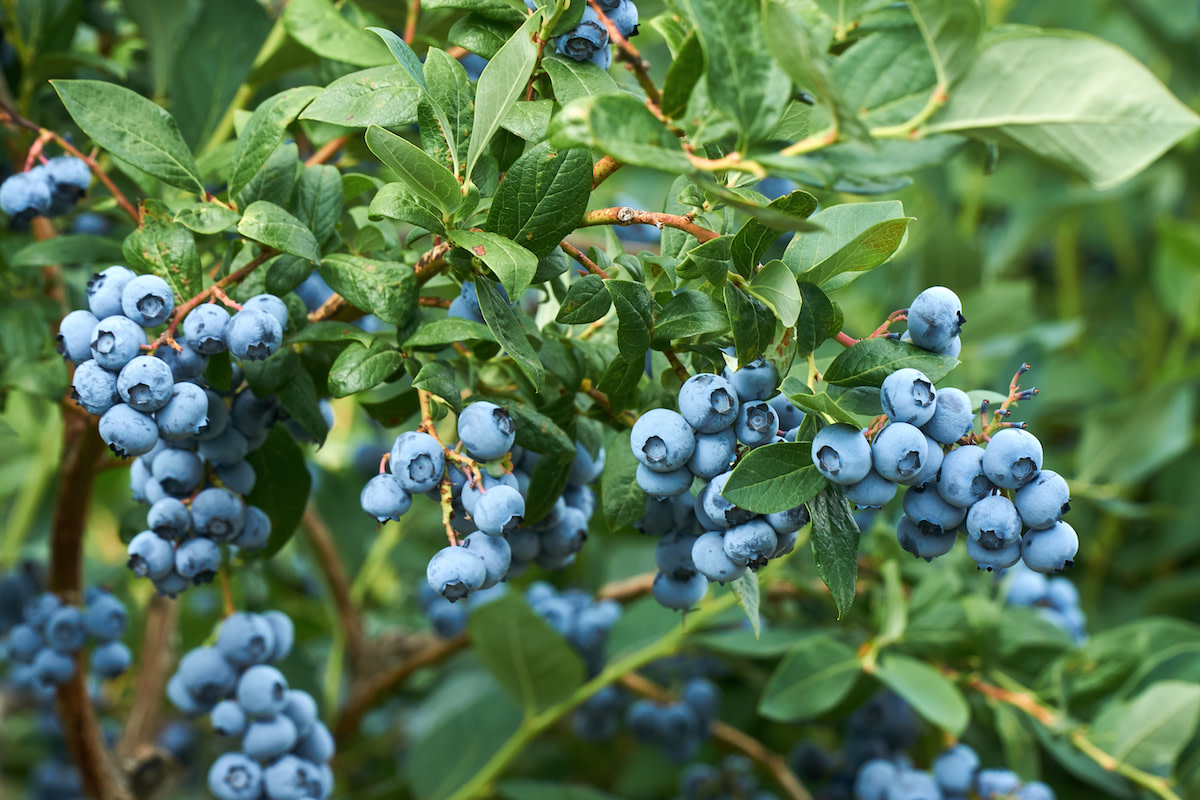Blueberry Companion Planting: What to Plant With Blueberries
Written by MasterClass
Last updated: Jun 7, 2021 • 3 min read
Growing blueberries is an exercise in patience and pay-off. A highbush blueberry patch can take up to five years to hit full production, but thoughtful companion planting can help the shrubs flourish along the way.
Learn From the Best
What Is Companion Planting?
Companion planting is a time-tested gardening method that enriches and protects vulnerable crops. Farmers and gardeners plant specific crops near each other in order to deter pests, attract beneficial insects, and stimulate growth.
What Are the Benefits of Companion Planting?
Companion plants can save space, stave off disease, or help a specific crop grow. This gardening method can provide a number of necessary support jobs in the garden:
- Repel insect pests. Cabbage worms, cucumber beetles, Mexican bean beetles, carrot flies, cabbage moths, spider mites and other pests can plague vegetable gardens. Many companion plants (like marigold flowers, nasturtiums, catnip, and rue) repel specific pests and should be planted near certain crops to keep them pest-free.
- Attract beneficial insects. Pollinators like bees and ladybugs can use a little encouragement to visit vegetable gardens and pollinate the crops. Gardeners often plant attractive plants like borage flowers to encourage pollinators to visit.
- Improve soil nutrients. When crops grow, they take up valuable nutrients from the soil—leaving the home gardener to do a lot of work at the end of the season to renew the soil’s nutrients. Some companion plants (like bush beans and pole beans) can add nutrients like nitrogen back into the soil, which helps keep other plants healthy and well-fed.
- Encourage faster growth or better taste. Companion plants (like marjoram, chamomile, and summer savory) release specific chemicals that encourage faster growth or better taste in the plants around them, leading to quicker and better harvests for home gardeners.
- Provide ground cover. Plants that spread low across the ground (like oregano) serve as a blanket over the soil, protecting it from the sun and keeping it cooler for plants that need it.
- Provide necessary shade. Plants that grow tall and leafy (like zucchini and asparagus) can provide welcome shade for sun-sensitive plants beneath them.
- Serve as markers. When growing slow-growing plants, it can be difficult to tell where the rows will be while you’re waiting for the seeds to sprout. Gardeners often use fast-growing plants (like radishes) interspersed with the slow growers in their rows to delineate where the slow growers will be.
Companion Plants to Grow With Blueberries
While blueberry plants are naturally resistant to many of the usual garden pests, they make good partners for many ornamental plants that attract pollinators—crucial for some varieties that require cross-pollination.
Blueberry plants thrive best in acidic soil (with a soil pH around 4.5) and full sun, so the best companions are acid-loving plants that can tolerate a lot of sun. Blueberries have shallow root systems, so companion plants must be planted outside of their root zone. Add peat moss to your soil before planting blueberries to make the soil more acidic. You can use pine needles as mulch around your blueberry bushes to help retain soil moisture.
- Flowers. Plant blueberries near flowers like lilacs and azaleas. Lilacs attract pollinators and provide shade with its fragrant blossoms. Towering, lush rhododendrons and azaleas offer shade and attractive blossoms during particularly hot summers, and thrive best in the same hot, acidic environment as blueberries.
- Herbs like basil and thyme act as living mulch or ground cover, controlling weeds, regulating soil temperature, and moisture. They can handle relatively acidic soil conditions, but nothing too aggressive.
- Grasses. Growing cover crops like grasses and grains on the planting site beforehand is a great way to fertilize the soil and pave the way for successful blueberry bushes.
Learn More
Grow your own food with Ron Finley, the self-described "Gangster Gardener." Get the MasterClass Annual Membership and learn how to cultivate fresh herbs and vegetables, keep your house plants alive, and use compost to make your community - and the world - a better place.
